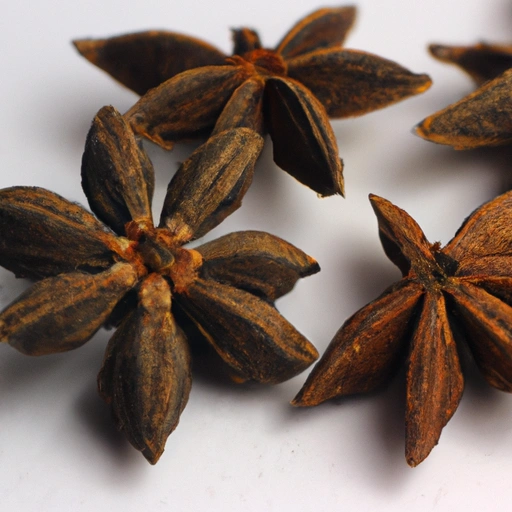Anise
Description

Anise, also known as Pimpinella anisum, is a flowering plant native to the Eastern Mediterranean and Southwest Asia. Its seeds, commonly referred to as aniseed, are known for their distinctive licorice-like flavor and are used as a spice in various dishes and beverages. Anise should not be confused with star anise, which is a different spice although they share a similar flavor profile due to the presence of anethole, the compound responsible for the licorice taste.
Common uses
Anise is widely used for flavoring cakes, cookies, bread, and fruit dishes. It is also a common flavor in candies, such as aniseed balls, and in liqueurs like ouzo, sambuca, and anisette. Beyond sweets, anise is used in some sausage and meat recipes for its potent flavor.
Nutritional value
Calories
One tablespoon (about 7 grams) of anise seeds provides approximately 23 calories.
Protein
Anise seeds contain about 1 gram of protein per tablespoon.
Fat
There is less than 1 gram of fat in a tablespoon of anise seeds.
Carbohydrates
Anise seeds provide about 3 grams of carbohydrates per tablespoon.
Vitamins
Anise is a good source of B-complex vitamins, particularly niacin, pyridoxine, riboflavin, and thiamine.
Minerals
Anise seeds offer a variety of minerals including calcium, iron, copper, potassium, manganese, zinc, and magnesium.
Health benefits
Anise has been traditionally used for its digestive properties, and it can help relieve bloating and gas. It also has antispasmodic, antiseptic, and sedative properties. Furthermore, anise is known to have antioxidant capabilities and may aid in cough relief and congestion.
Potential risks
While anise is generally safe when used in food amounts, it may cause allergic reactions in some individuals. It should also be used with caution by pregnant and breastfeeding women, as well as those with hormone-sensitive conditions due to its mild estrogenic effects.
Common recipes
Anise is often found in European baked goods such as pizzelle, Springerle, and Pfeffernüsse cookies. In Indian cuisine, aniseed is used in masala chai and various curries.
Cooking methods
Anise can be used whole, crushed, or ground. To release its full flavor, it is often toasted before being added to recipes.
Pairing with other ingredients
Anise pairs well with citrus, apples, and pears, as well as with spices such as cinnamon, cloves, and nutmeg.
Summary
Anise is a versatile and flavorful spice with a rich history and a wide array of culinary applications. While its licorice flavor may be an acquired taste for some, it is a staple in many traditional recipes around the world. Its nutritional and health benefits make it a welcome addition to a balanced diet, provided it is consumed in moderation and with attention to potential risks for those with specific health conditions.